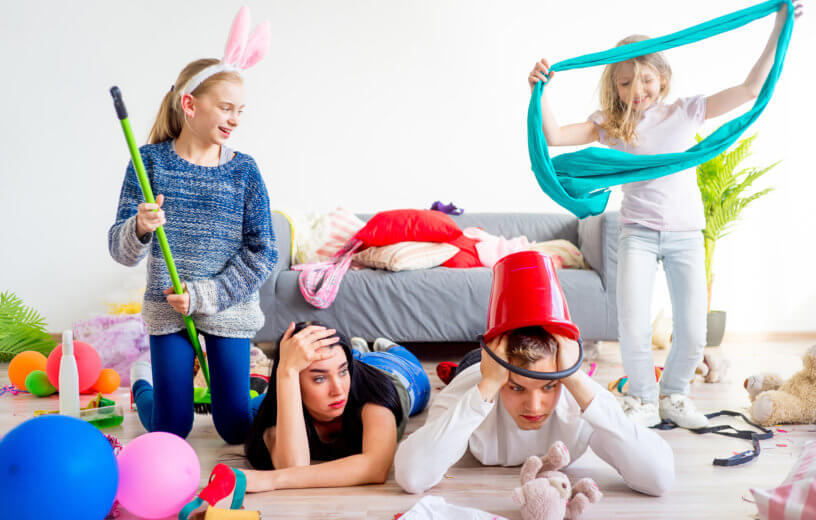WASHINGTON, D.C. — There may be no one more ready for the COVID-19 quarantine to end completely and life to pick back up where it left off than moms and dads. Between home schooling, keeping the little ones occupied, feeding them, cleaning up after them, dealing with tantrums — and, oh yeah, that thing called “work,” it’s another tiring full-time job. A new survey conducted by The Harris Poll echoes that sentiment. Researchers say nearly half of parents with children under 18 are battling severe stress as coronavirus restrictions wear on.
The American Psychological Association and The Harris Poll have started a new monthly survey to try and understand the effect the coronavirus pandemic is having on the stress levels of American adults. They recently published the results of their first “Stress In America” survey, which was conducted between April 24 and May 4, 2020.
The survey of 3,013 adults shows that parents of kids younger than 18 are the most stressed: 46% of this segment rates their stress levels at least an 8 out of 10. Conversely, just 28% of respondents who don’t have children under 18 report feeling the same way.
“For many parents, it can feel overwhelming to face competing demands at home and work along with possible financial challenges during this unprecedented crisis,” says Arthur C. Evans Jr., PhD, American Psychological Association CEO, in a statement. “Children are keen observers and often notice and react to stress or anxiety in their parents, caregivers, peers and community. Parents should prioritize their self-care and try their best to model healthy ways of coping with stress and anxiety.”
A big source of stress for parents is managing their child’s education through distancing. Seven out of 10 parents are having a hard time balancing their child’s online school schedule and their own work schedule. Many are also struggling to provide basic needs like food and housing for their children. Another 70% of parents admit they’re struggling to providing these basic necessities, compared to 44% of non-parents.
Moms and dads are also stressing about access to healthcare (66%) and missing milestones, like weddings and graduations (63%). Once again, that’s significantly higher than non-parents: 44% and 43% respectively.
There are some areas where most respondents are in agreement. The survey shows that the economy is major headache for both parents and non-parents. Seven out of 10 adults say the economy is stressing them out, a figure comparable to results from the same poll during the 2008 recession. It’s also much higher than the results from the 2019 poll, where less than half (46%) of American adults were stressed out about the economy.
Quite a lot has changed in one year regarding the attitudes of Americans towards the economy, but not much is different in feelings towards work. Just like last year, 70% of Americans still say work is a significant source of stress.
Analysis of the survey results by race shows that the pandemic is harder on people of color than it is on whites. People of color are more worried about getting infected with COVID-19 than white respondents (71% versus 59%), basic needs (61% versus 47%), and access to healthcare (59% versus 46%).
Moreover, Hispanic adults are most likely to say they constantly or often feel stress as a result of the pandemic (37%), as compared with white (32%), black (32%), Native American (31%), and Asian (28%) adults.
“The mental health ramifications of the coronavirus pandemic are immense and growing,” Evans warns. “We need to prepare for the long-term implications of the collective trauma facing the population. On an individual level, this means looking out for one another, staying connected, keeping active and seeking help when necessary.”
For those who would like more information on how to cope with stress and anxiety during this time, psychologists and healthcare workers continually update a COVID-19 mental health resource page on the American Psychological Association’s website.
Like studies? Follow us on Facebook!
